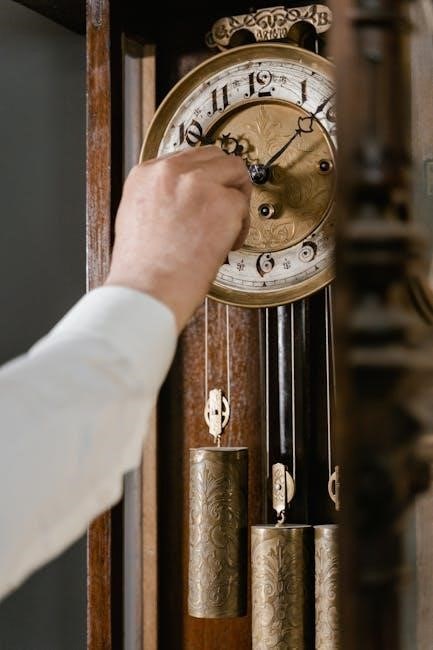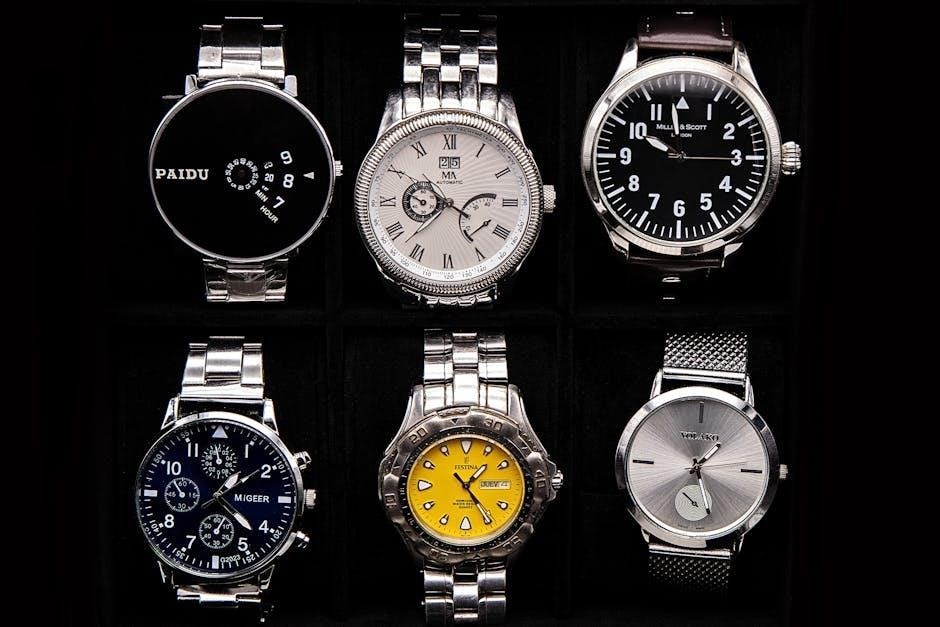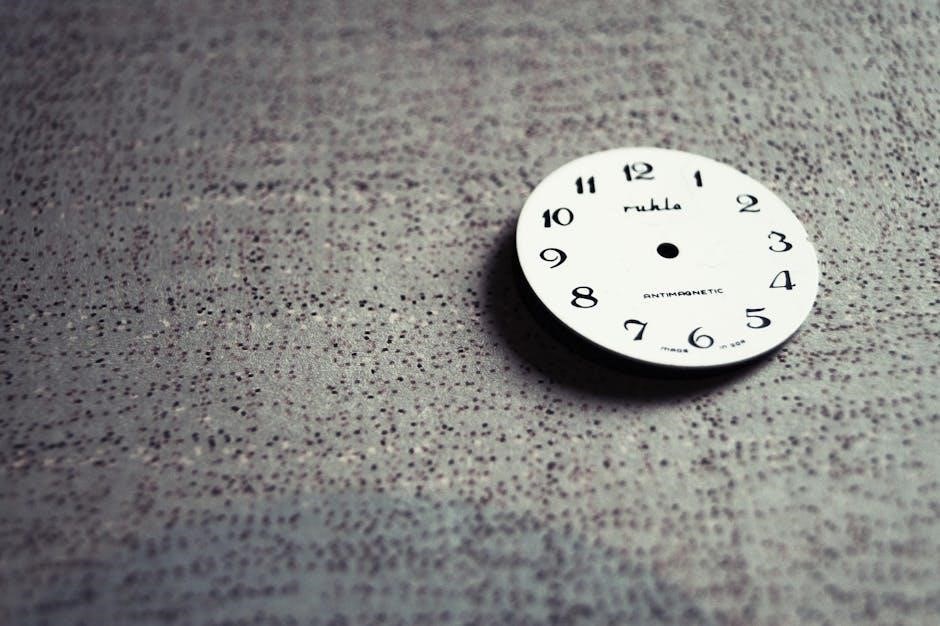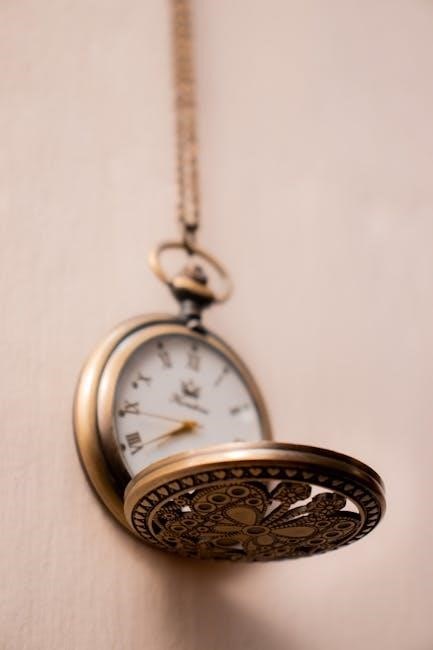The document provides instructions for collecting urine samples through various methods like clean-catch midstream collection and 24-hour urine collection procedures online every day.
Importance of Accurate Collection
Accurate collection of urine samples is crucial for obtaining reliable test results, and this is particularly important for 24-hour urine collection procedures. The University of Rochester Medical Center emphasizes the need for precise measurement of collected urine volume. Extreme temperatures can affect the vitality of specimens, and therefore, it is essential to handle them properly. In order to minimize the impact of temperature, laboratory specimens should not be placed in a lockbox until close to the end of the day. Proper handling and storage of urine samples ensure the accuracy of test results, which is vital for diagnosis and treatment of various medical conditions. A single 24-hour urine collection may not be adequate for medical evaluation, and accurate collection methods are necessary to obtain reliable data. This importance is reflected in the instructions provided for collecting urine samples through various methods.

Preparation for 24 Hour Urine Collection
Patients receive instructions for preparation and collection procedures online every single day normally.
Instructions for Patients
Patients are given detailed instructions on how to prepare for the 24-hour urine collection, including dietary restrictions and medication guidelines. The instructions are usually provided in a PDF format, which can be easily accessed and printed online; Patients are advised to follow the instructions carefully to ensure accurate test results. The instructions may include information on how to collect the urine samples, how to store them, and how to transport them to the laboratory. Patients may also be required to fill out a questionnaire or a consent form before the test. The instructions are designed to be easy to understand and follow, and patients are encouraged to ask questions if they are unsure about any aspect of the test. By following the instructions carefully, patients can help ensure that the test results are accurate and reliable. The instructions are an important part of the 24-hour urine collection process.

Methods of Urine Collection
Various methods are used for urine collection including clean-catch midstream collection daily.
Clean-Catch Midstream Collection
The clean-catch midstream collection method is a technique used to collect urine samples, it involves cleaning the genital area and then urinating into a container, stopping the flow of urine mid-stream to collect the sample. This method is used to minimize contamination of the urine sample with bacteria and other microorganisms from the skin. The clean-catch midstream collection method is often used for routine urine tests, such as urinalysis, and for collecting urine samples for culture and sensitivity testing. It is an important method for collecting urine samples because it helps to ensure that the sample is not contaminated, which can lead to inaccurate test results. The method involves washing the hands and genital area, and then urinating into a sterile container, stopping the flow of urine mid-stream to collect the sample, this helps to prevent contamination of the sample.

Special Considerations for 24 Hour Urine Collection
Extreme temperatures affect specimen vitality, handle with care and follow specific guidelines every day online.
Temperature Control and Specimen Handling
Proper temperature control and specimen handling are crucial for accurate test results, extreme temperatures can affect the vitality of specimens.
It is essential to follow specific guidelines to minimize damage, for instance, do not place laboratory specimens in a lockbox until close to the end of the day.
If an earlier pick-up time is required, it is recommended to call Client Services to arrange for a special collection, this ensures that specimens are handled and stored correctly.
Additionally, it is vital to exactly measure the volume of collected urine, and dilute urine samples in a 1:19 ratio with a preservative, this helps to maintain the integrity of the specimen.
By following these guidelines, individuals can ensure that their urine specimens are properly handled and stored, which is essential for accurate test results and effective medical evaluation.

Medical Laboratory Testing and 24 Hour Urine Collection
UKAS accredited tests are available for medical laboratory testing and evaluation purposes online daily.
UKAS Accredited Tests and Schedule of Accreditation
For details of all current UKAS accredited tests, please refer to the Schedule of Accreditation document which is available online. The document provides information on the various tests that are accredited by UKAS, including those related to 24 hour urine collection. The Schedule of Accreditation is regularly updated to reflect changes in testing procedures and methodologies. It is an important resource for medical professionals and patients who require accurate and reliable test results. The UKAS accredited tests are conducted in accordance with international standards, such as ISO 15189:2012, to ensure the highest level of quality and accuracy. By referring to the Schedule of Accreditation, individuals can be assured that the tests they undergo are conducted to the highest standards of quality and reliability, which is essential for accurate diagnosis and treatment. This information is readily available on the internet.
Applications of 24 Hour Urine Collection in Medical Research
Medical research utilizes 24 hour urine collection for cancer care and nephrolithiasis evaluation purposes every day online.
Role of 24 Hour Urine Collection in Cancer Care and Nephrolithiasis Evaluation
At MSK, cancer care from immunotherapy and surgery to integrative medicine is the only thing they do, utilizing 24 hour urine collection for evaluation purposes.
The University of Rochester Medical Center is a private, coeducational institution that forms the centerpiece of the University of Rochester’s health research, teaching, and patient care missions, including nephrolithiasis evaluation using 24 hour urine collection.
A single 24-hour urine collection is inadequate for the medical evaluation of nephrolithiasis, according to J Urol, and 24 hour urine collection is essential for cancer care and nephrolithiasis evaluation in medical research.
The determination in urine uses a 24 hours specimen, and it is essential to exactly measure the volume of collected urine for accurate evaluation and diagnosis.
Proper evaluation and diagnosis are crucial in cancer care and nephrolithiasis treatment, and 24 hour urine collection plays a significant role in this process, providing valuable information for medical professionals.
By using 24 hour urine collection, medical professionals can gain a better understanding of the patient’s condition and develop an effective treatment plan, improving patient outcomes and quality of life.
Overall, 24 hour urine collection is a vital tool in cancer care and nephrolithiasis evaluation, and its importance cannot be overstated in medical research and patient care.
The use of 24 hour urine collection in medical research has led to significant advancements in cancer care and nephrolithiasis treatment, and its continued use will likely lead to further breakthroughs and improvements in patient care.
As medical research continues to evolve, the role of 24 hour urine collection in cancer care and nephrolithiasis evaluation will remain essential, providing valuable insights and information for medical professionals.
In conclusion, 24 hour urine collection is a crucial component of cancer care and nephrolithiasis evaluation, and its importance will only continue to grow as medical research advances.
The future of cancer care and nephrolithiasis treatment will likely involve the continued use of 24 hour urine collection, and its development will be shaped by ongoing medical research and advancements.
Therefore, it is essential to continue to utilize and develop 24 hour urine collection methods to improve patient outcomes and quality of life.
By doing so, medical professionals can provide the best possible care for patients with cancer and nephrolithiasis, and improve the overall quality of life for these individuals.
In the end, the use of 24 hour urine collection in cancer care and nephrolithiasis evaluation will lead to better patient outcomes, improved quality of life, and increased survival rates for patients with these conditions.
The importance of 24 hour urine collection in medical research cannot be overstated, and its continued use will be essential in the development of new treatments and therapies for cancer and nephrolithiasis.
As a result, medical professionals must continue to utilize and develop 24 hour urine collection methods to provide the best possible care for patients with these conditions.
This will involve ongoing research and development, as well as the implementation of new technologies and methods for 24 hour urine collection.
The future of cancer care and nephrolithiasis treatment is dependent on the continued use and development of 24 hour urine collection, and medical professionals must prioritize this area of research to improve patient outcomes.
In order to do so, medical professionals must stay up-to-date with the latest advancements and developments in 24 hour urine collection, and be willing to adapt and evolve their methods as new information becomes available.
By working together, medical professionals can improve patient outcomes and quality of life for individuals with cancer and nephrolithiasis, and make significant advancements in the field of medical research.
Ultimately, the use of 24 hour urine collection in cancer care and nephrolithiasis evaluation will lead to improved patient outcomes, increased survival rates, and a better quality of life for patients with these conditions.
This is a critical area of research, and medical professionals must continue to prioritize the development and use of 24 hour urine collection methods to achieve these goals.
The importance of 24 hour urine collection in medical research will only continue to grow, and its use will be essential in the development of new treatments and therapies for cancer and nephrolithiasis.
As a result, medical professionals must be committed to ongoing research and development in this area, and must be willing to adapt and evolve their methods as new information becomes available.
This will involve a significant amount of time and resources, but the potential benefits to patients with cancer and nephrolithiasis make it a critical area of focus.
In the end, the use of 24 hour urine collection in cancer care and nephrolithiasis evaluation will be essential in improving patient outcomes and quality of life, and medical professionals must prioritize this area of research to achieve these goals.
The future of medical research is dependent on the continued use and development of 24 hour urine collection, and medical professionals must be committed to ongoing research and development in this area.
By doing so, medical professionals can improve patient outcomes, increase survival rates, and provide a better quality of life for patients with cancer and nephrolithiasis.
This is a critical area of research, and medical professionals must prioritize the development and use of 24 hour urine collection methods to achieve these goals and improve patient care.
The use of 24 hour urine collection in cancer care and nephrolithiasis evaluation is a vital component of medical research, and its importance will only continue to grow as new treatments and therapies are developed.
As a result, medical professionals must be committed to ongoing research and development in this area, and must be willing to adapt and evolve their methods as new information becomes available.
This will involve a significant amount of time and resources, but the potential benefits to patients with cancer and nephrolithiasis make it a critical area of focus.
In order to achieve these goals, medical professionals must prioritize the development and use of 24 hour urine collection methods, and must be committed to ongoing research and development in this area.
The importance of 24 hour urine collection in medical research cannot be overstated, and its continued use will be essential in the development of new treatments and therapies for cancer and nephrolithiasis.
Medical professionals must be dedicated to improving patient outcomes and quality of life, and must prioritize the development and use of 24 hour urine collection methods to achieve these goals.
The future of cancer care and nephrolithiasis treatment is dependent on the continued use and development of 24 hour urine collection, and medical professionals must be committed to ongoing research and development in this area.
By working together, medical professionals can improve patient outcomes, increase survival rates, and provide a better quality of life for patients with cancer and nephrolithiasis.
The use of 24 hour urine collection in cancer care and nephrolithiasis evaluation is a critical area of research, and medical professionals must prioritize the development and use of these methods to achieve these goals.
In conclusion, the importance of 24 hour urine collection in medical research cannot be overstated, and its continued use will be essential in the development of new treatments and therapies for cancer and nephrolithiasis.
Medical professionals must be committed to ongoing research and development in this area, and must prioritize the development and use of 24 hour urine collection methods to improve patient outcomes and quality of life.
The future of medical research is dependent on the continued use and development of 24 hour urine collection, and medical professionals must be dedicated to improving patient care and outcomes.
The use of 24 hour urine collection in cancer care and nephrolithiasis evaluation will lead to improved patient outcomes, increased survival rates, and a better quality of life for patients with these conditions.
In the end, medical professionals must prioritize the development and use of 24 hour urine collection methods to achieve these goals and improve patient care.
The importance of 24 hour urine collection in medical research will only continue to grow, and its use will be essential in the development of new treatments and therapies for cancer and nephrolithiasis.
As a result, medical professionals must be committed to ongoing research and development in this area, and must be willing to adapt and evolve their methods as new information becomes available.
By doing so, medical professionals can improve patient outcomes, increase survival rates, and provide a better quality of life for patients with cancer and nephrolithiasis.
The future of cancer care and nephrolithiasis treatment is dependent on the continued use and development of 24 hour urine collection, and medical professionals must prioritize this area of research to achieve these goals.
In order to do so, medical professionals must stay up-to-date with the latest advancements and developments in 24 hour urine collection, and be willing to adapt and evolve their methods as new information becomes available.
The use of 24 hour urine collection in cancer care and nephrolithiasis evaluation is a vital component of medical research, and its importance will only continue to grow as new treatments and therapies are developed.
Medical professionals must be dedicated to improving patient outcomes and quality of life, and must prioritize the development and use of 24 hour urine collection methods to achieve these goals.
The importance of 24 hour urine collection in medical research cannot be overstated, and its continued use will be essential in the development of new treatments and therapies for cancer and nephrolithiasis.
In the end, the use of 24 hour urine collection in cancer care and nephrolithiasis evaluation will lead to improved patient outcomes, increased survival rates, and a better quality of life for patients with these conditions.
The future of medical research is dependent on the continued use and development of 24 hour urine collection, and medical professionals must be committed to ongoing research and development in
